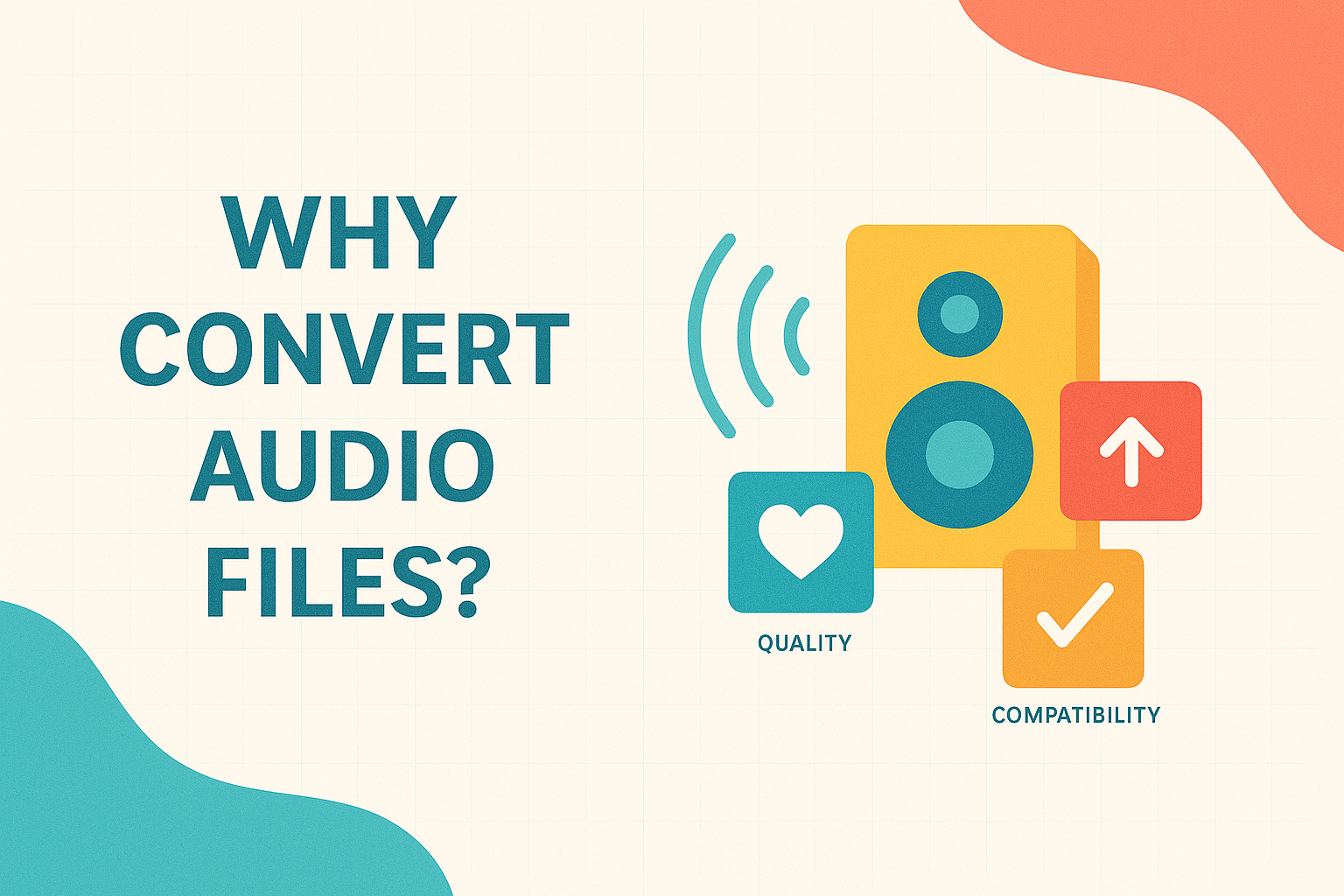
Why Convert Audio Files? Understanding When and Why It Matters
WHY CONVERT AUDIO FILES?
Audio conversion helps for different reasons depending on your needs.
FILE SIZE AND STORAGE
- MP3 files use lossy compression, shrinking audio by 75–95%, making them much smaller than uncompressed formats like WAV ([Wikipedia](https://en.wikipedia.org/wiki/MP3), [Gumlet](https://www.gumlet.com/learn/wav-vs-mp3/)).
- A 3‑minute WAV might be 30–40 MB, while MP3 is often just 3–5 MB ([Gumlet](https://www.gumlet.com/learn/wav-vs-mp3/)).
COMPATIBILITY AND DEVICE SUPPORT
- MP3 is supported by nearly all devices—phones, cars, and media players ([Wikipedia](https://en.wikipedia.org/wiki/MP3), [Lifewire](https://www.lifewire.com/mp3-file-2622780)).
- WAV works well in Windows and editing software, but is less practical for sharing due to size ([Lifewire](https://www.lifewire.com/wav-wave-files-2622395), [Wikipedia](https://en.wikipedia.org/wiki/WAV)).
QUALITY AND EDITING FLEXIBILITY
- WAV is uncompressed, keeping full audio quality for editing or archiving ([Wikipedia](https://en.wikipedia.org/wiki/WAV), [Lifewire](https://www.lifewire.com/best-codecs-for-ripping-and-preserving-audio-cds-2438765)).
- MP3 discards audio data, so quality can drop at lower bitrates, though high bitrates sound similar to WAV ([Gumlet](https://www.gumlet.com/learn/wav-vs-mp3/), [Movavi](https://www.movavi.com/learning-portal/wav-vs-mp3.html)).
SUMMARY
- Use MP3 when you need smaller files and wide support.
- Use WAV for best quality and editing.